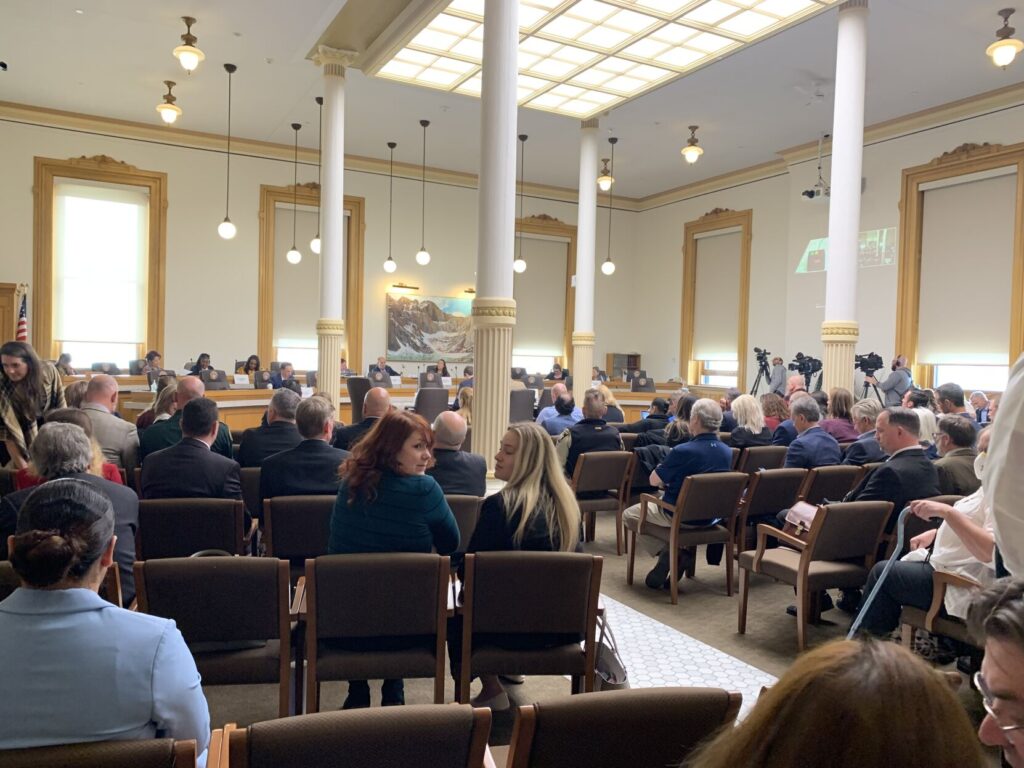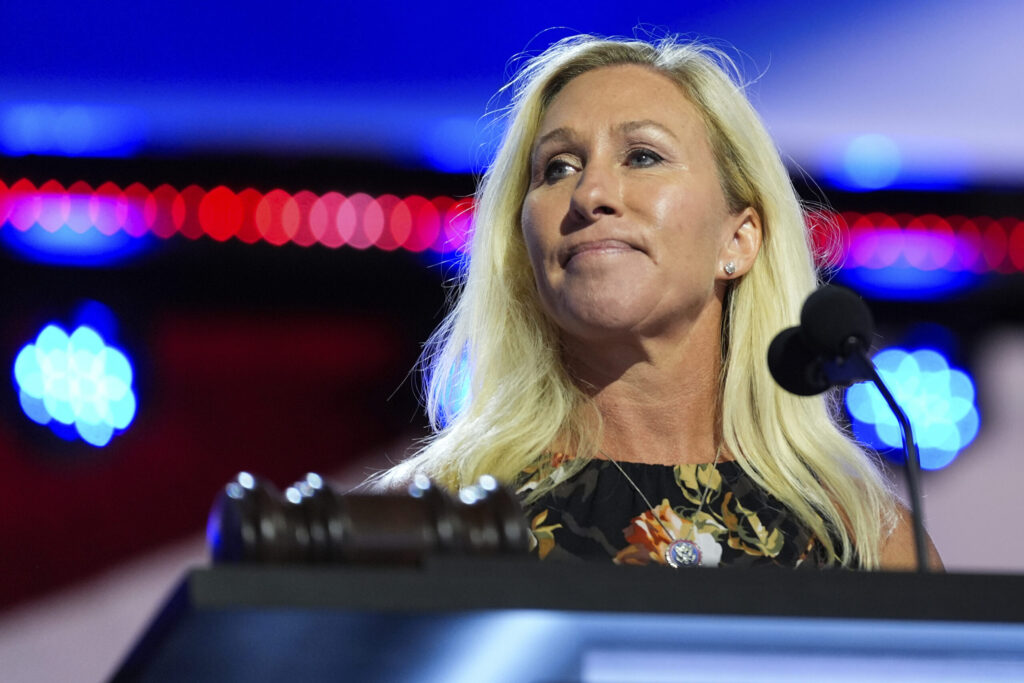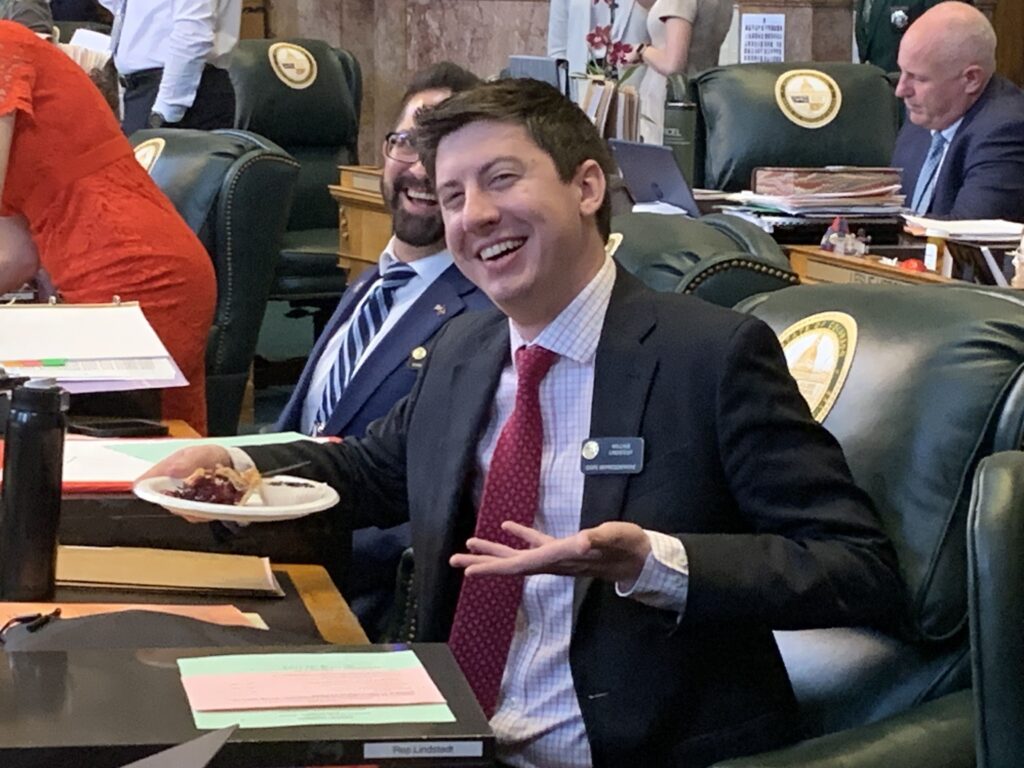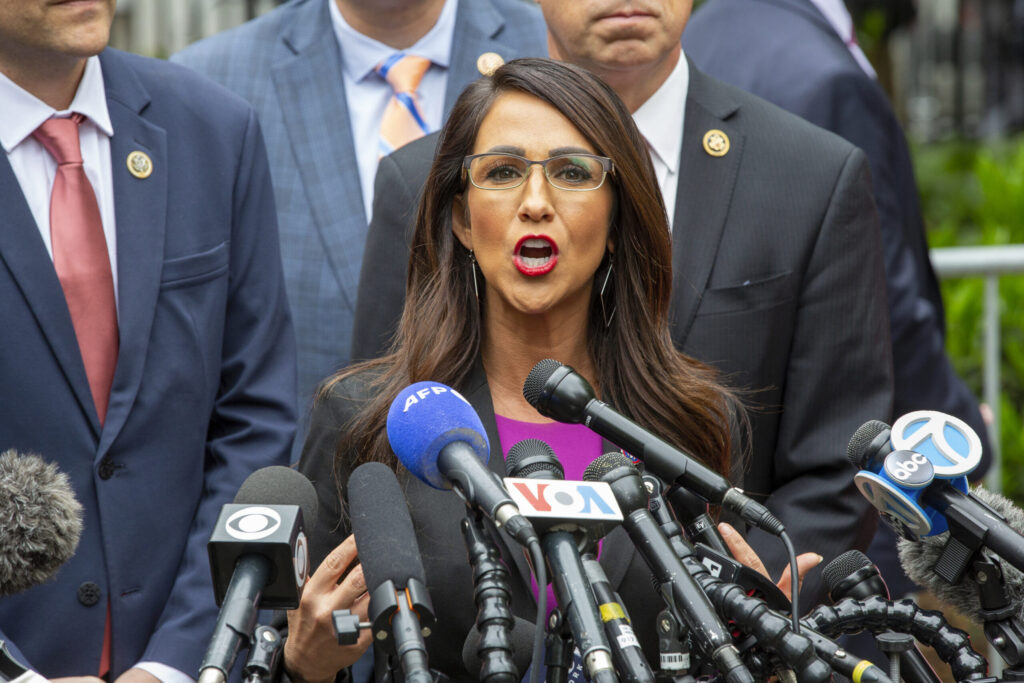Colorado Senate adds roughly $800 million, passes $37.2 billion state spending plan

Colorado senators on Thursday approved a state budget for next year that ballooned to $37.2 billion after they added more than $783 million in new spending.
The final vote on House Bill 1329 stood at 22-12, with Joint Budget Committee member Sen. Bob Rankin of Carbondale and Sen. Kevin Priola of Henderson, both Republicans, supporting the budget package.
This is a good budget, insisted Joint Budget Committee member Sen. Rachel Zenzinger, D-Arvada.
Is it a perfect one? Yes, she said, to some laughs in the chamber.
“Perfect can also be messy,” she said.
Lawmakers crafted the budget as the state faces the lingering effects of the pandemic and fallout of the health crisis, an economic downturn, and disastrous fires.
And while federal money helped close some of the gaps, it added layers of complexity to a process already loaded with volatility, Zenzinger told her colleagues, describing the budget process as requiring a larger than usual team effort.
The Senate’s vote capped two weeks of maneuvering in both chambers, beginning with the state House’s decision to add $63.5 million in cash and general fund dollars to the original proposal to fund policymakers’ priorities. The Senate Appropriations Committee, however, stripped off all of the changes the House approved, and then the full Senate increased spending by $783 million, according to JBC Vice-chair Sen. Chris Hansen, D-Denver.
However, that additional spending, which highlighted the political machinations in the legislature in an election year, is unlikely to stay. The JBC is expected to remove most of those changes when they reconcile the differences between the House and the Senate’s budget versions, before sending the budget to Gov. Jared Polis.
“You’ll complain about what we do in the conference committee,” Rankin warned his colleagues.
The debate in the Senate Wednesday centered on an amendment to add $503 million to the Department of Education’s budget. Under that plan, half of the money would pay for teacher pay increases, but it’s an amendment that’s unlikely to stay put.
Hansen hinted as much.
“Last night I asked if the Senate is full of drunken sailors,” he said, before promising that the conference committee will come back with a balanced budget.
And despite the actions during Wednesday’s debate, Hansen maintained, “We have a budget that looks to the future.”
Hansen noted the budget spends record amounts on higher education, puts the state’s statutory reserves at record levels, allocates substantial money toward maintenance of state buildings, and invests in public defenders and in K-12, notably special education.
But Republicans warned of the impending fiscal cliff created by a budget too reliant on one-time state or federal money.
Rankin, who noted how federal funding currently augments the state’s coffers, said lawmakers should worry whether work paid for with one-time dollars can be sustained, not to mention whether such programs can accomplish their goals in a such a short time.
“When we leave, we leave a lot of spending in place, and it will be difficult to go back to a budget” driven only by state revenue, he said.
Republicans also complained about the growth in the budget over the years, despite winning votes on amendments that increased spending by more than three quarters of a billion. Out of the $783 million added to the budget Wednesday, Republicans had sponsored or co-sponsored amendments that collectively spiked spending by $700 million.
“This is runaway state spending,” said Sen. Paul Lundeen, R-Monument, noting the state budget is growing at a rate faster than the economy.
Lundeen, in fact, spoke in support of the $503 million for teacher pay and paying down the debt to K-12, but he emphasized he has no confidence that amendment will remain on the bill. He also railed against putting more into the reserves rather than investing in other needs, such as transportation.
The changes made by the Senate reflected not only lawmakers’ priorities but also political positioning with the primaries just around the corner.
Senate Minority Leader Sen. Chris Holbert, R-Douglas County, hinted at the contours of the election machinations.
Holbert, who noted it’s his last budget as he’s term-limited at the end of the year, said he looks forward to seeing the first budget under Rankin as chair of the Joint Budget Committee, forecasting that Republicans will take control of the Senate after November’s elections.
During Wednesday’s debate, Sen. Barbara Kirkmeyer, R-Brighton, pointed to a Democratic-backed law during the 2021 session to set up an educator pay-raise fund that didn’t include immediate funding from the legislature.
“Sounds like we do get involved in educator pay,” she said, adding Colorado teachers are among the lowest-paid in the nation.
Kirkmeyer, who is running for the June 28 Republican primary in the 8th Congressional District, was referring to longstanding arguments by legislators that local school boards – not General Assembly – determine teacher pay.
Also on Wednesday, Holbert argued that the time has come to repay what’s called the budget stabilization factor, “an IOU” to K-12 education that started in 2012 and reached a high of more than $1.2 billion two years ago. The original 2022-23 budget proposal would pay that debt down by $182 million to $321 million.
“Folks in my party are sometimes accused of not caring enough about teachers or teacher pay. This is evidence that’s not true,” Holbert said.
Rankin, the Carbondale Republican, and Zenzinger, the Arvada Democrat, pushed back. Rankin told the Senate the JBC has a plan to eliminate the budget stabilization factor.
“We’re putting aside $840 million in the state education fund,” he said, adding that money will form the basis for the School Finance Act, and then pay off the state debt in the next year or two.
Zenzinger, however, said the amendment is based on one-time money that will create a budget deficit in the next year.
“You can’t increase teacher salaries on one-time money,” she said.
The amendment passed on a voice vote, which many see as a political tap dance, given the difficulty of being seen as voting against more money for education.
All told, senators offered 37 amendments, some of which mirrored House changes to the budget as introduced. They included funding additions to the Tony Grampsas Youth Services Program, more money for an eviction legal defense fund and a pay hike for state troopers.
Senators did not make changes to the budget for the Office of Public Guardianship, which is seeking $1.5 million to add two judicial districts to the program.
In addition to the $503 million in education funding, senators added $200,000 to the Department of Agriculture’s budget for its rural mental health program.
Another amendment came from Sen. Dennis Hisey, R-Colorado Springs, who sought $100,000 to study small modular nuclear reactors.
Republicans also tried but failed to pay off, or pay down, the red ink in the Unemployment Insurance Trust Fund, with two amendments from Sen. Rob Woodward, R-Loveland.
Wednesday’s final amendment added $141 million in cash funds, including American Rescue Plan Act dollars, to pay for nine capital projects. The bulk of the funding for the five higher education projects on the list will come from the institutions themselves.














